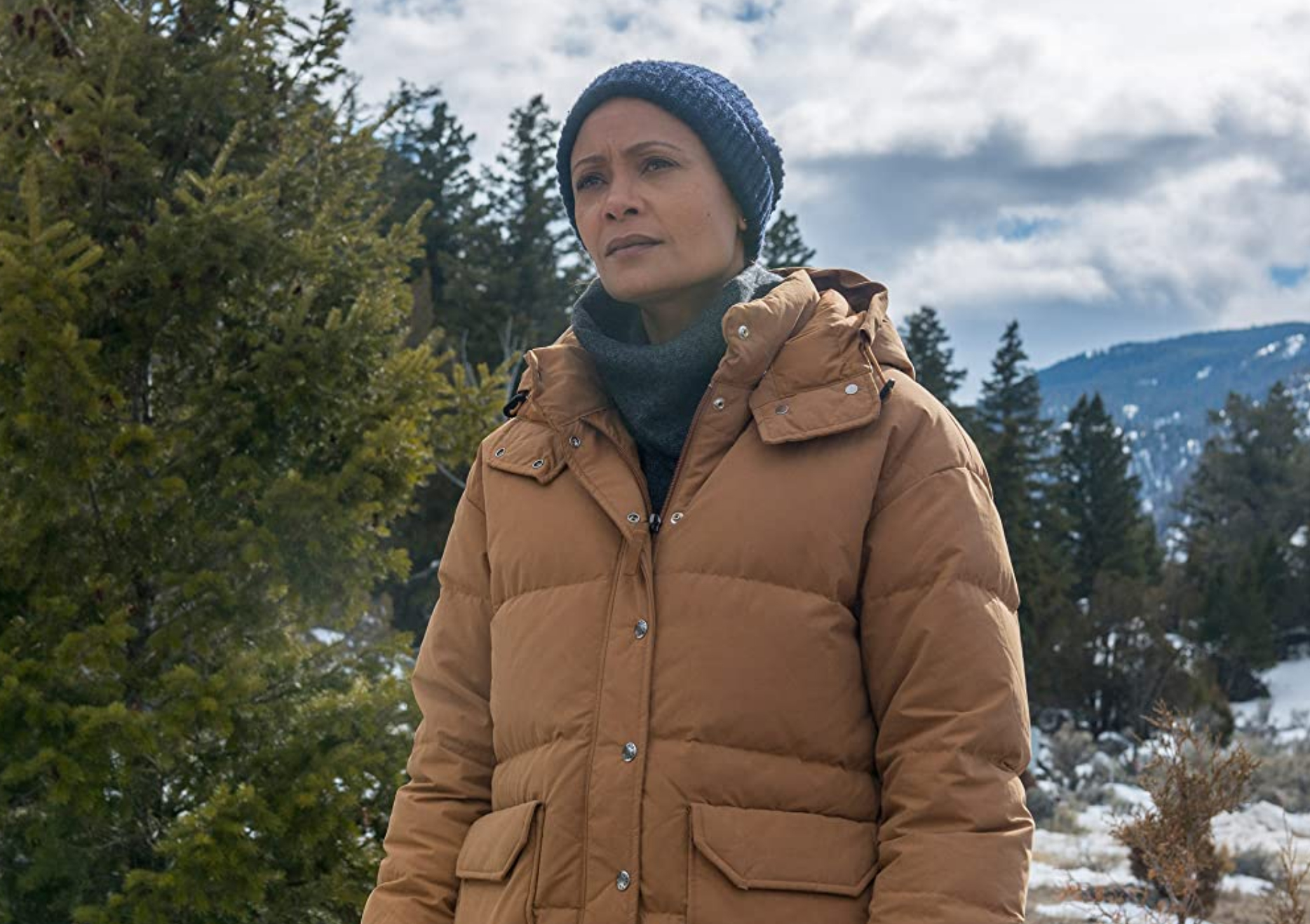
- Festivals
Sundance 2022: “God’s Country”
God’s Country is a complex neo-western about a female college professor’s escalating feud with two men in the godless countryside. It premiered at Sundance.
God’s Country is loosely based on a James Lee Burke short story called “Winter Light” about an aging professor in Montana, who fights off two hunters who trespass on his property. Director Julian Higgins, who co-wrote the script with Shaye Ogbonna, had initially directed a short film of the same title in 2015 but decided to make his feature film debut with a new version. Now, the lead was a female professor, a woman of color, whose fight with the two white trespassers escalates in horrifying ways during the cause of the film.
“I believe Julian had the idea of changing the character from a white man to a black woman in her forties,” said Shaye Ogbonna at a Q&A at the Sundance Film Festival. “By putting a black woman in a mostly rural setting, she immediately visually becomes an outsider.”
At the beginning of God’s Country’s Sandra Guidry (Thandiwe Newton) has just buried her mother, who reluctantly moved with her daughter from New Orleans to Montana, but never found solace here. Sandra now lives alone in the middle of nowhere in a beautiful canyon in the mountains and seems to be the only black woman in the area.
She teaches public speaking at the university, but it turns out she had a previous career as a cop in New Orleans, a fact that is discovered by the local Deputy Gus Wolf (Jeremy Bobb) during a confrontation with some local men.
Sandra has reported two white men, who want to park on her property while going hunting. She subsequently meets Gus Wolf at a party, where he apologizes. She explains why she left New Orleans and dropped her wish to serve her community as a cop in one sentence: “They let my people drown and they did not give a God damn about it.” He has no clue what she is talking about.
Thandiwe Newton, who stars in the movie also spoke at the Q&A about the scene between the law enforcer and Sandra:
“For me as an actress, as Thandiwe, the mother, the woman, the black woman, the person, who witnessed what happens in New Orleans from afar with the hurricane, and this scene really, really helped me understand how it must feel for a person from New Orleans to not be encountered by people who are supposedly from the same United States, and just how lonely and oppressive that is and the sad tragedy of that,” she said.
Race, religion and cultural divides are among the main themes in God’s Country, where Sandra is isolated as the only black woman in an all-white, mostly male faculty at the university. She is also isolated in the community as a whole.
But Julian Higgins sees God’s Country first and foremost as an existential story. The cold, remote setting was perfect to get this point across.
“I think the moment you place a tiny human being in a giant landscape, what that is doing is facing the audience with an existential question,” said Julian Higgins. “I hope it’s an emotional experience as you watch it and not so much an intellectual experience.”
Even though God was present in Sandra’s mother’s life – she was an organist in a church in New Orleans and believed that God would look after them, that is not the case for Sandra, who at one point explains that she “believed once”. Now, she is in a Godless country and needs to fend for herself.
“It’s literally survival and you’re just a small human being,” said Shaye Ogbonna, who was struck by the majestic landscape in Montana. “When you put a story like this within that environment, it just takes on a different perspective.”
Thandiwe Newton welcomed the role of Sandra Guidry with open arms. She saw it as a chance to send a message.
“I have been trying to make my activism part of my work,” she said. “When I joined Westworld, it changed me in terms of streamlining my activism into my art. It also made me love the Western.”
Newton also pointed to the work that she has been doing with the American civil rights advocate Kimberlé Crenshaw and the African American Policy Forum and movement #SayHerName for the past several years.
“My fight, alongside them, to try and be open to critical race theory and the extraordinary gift that gives the world, and suddenly there was God’s Country in my lap, and it dialed into all of those things.”
She also cherished the character, Sandra Guidry, who was named after Sandra Bland, a 28-year- old black woman, who was taken into custody in Texas over failing to signal a lane change. She was found hanging in her jail cell three days later and her death was officially ruled a suicide.
“The fact that these two men wanted to honor her, and not just her, all the women, all women, not just African American women, all women who have felt oppressed, who have felt that they cannot achieve their full potential because a women’s full potential means a family’s full potential, it means a community’s full potential, it means a world’s full potential. That’s not a threat, it’s just a beautiful truth.”

